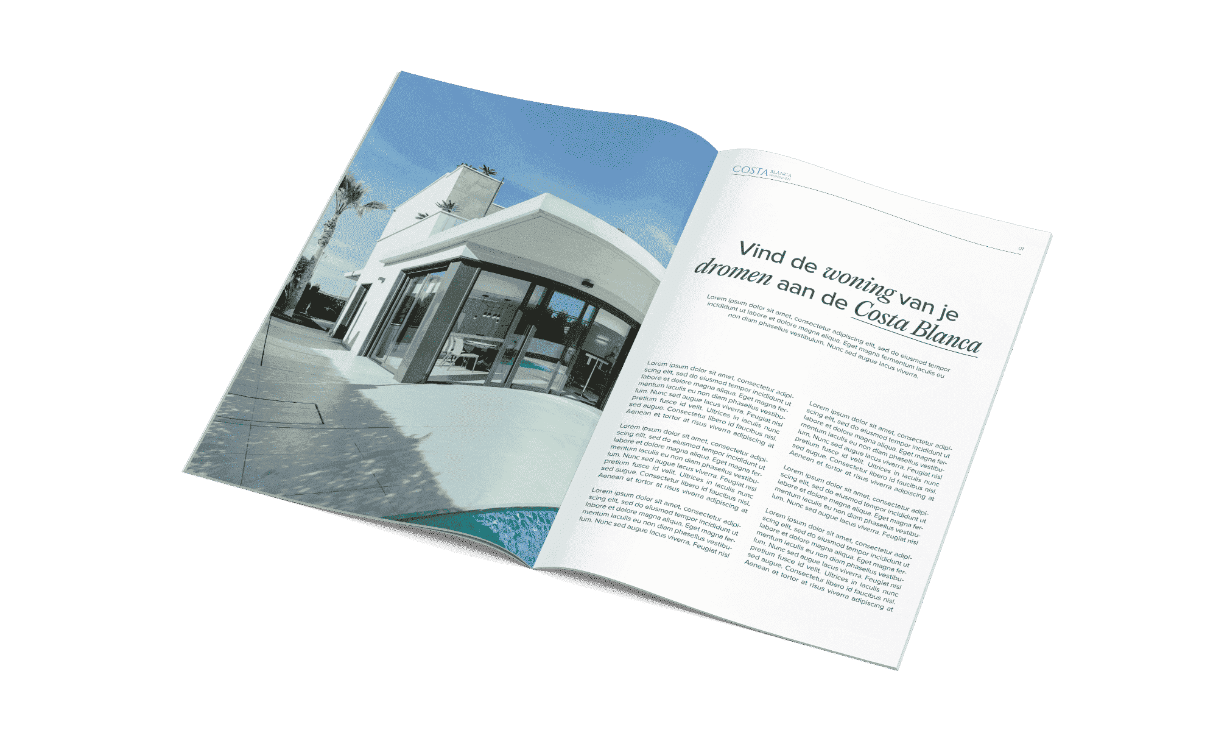Everything You Need to Know About Renting Out Your Spanish Property: What's New or Changed Since 2024?

Are you considering buying a property in Spain to rent out? Perhaps you’re wondering if you need a special permit, how taxes are handled, or what steps are required to comply with legal regulations. Spanish real estate has long been popular among foreign investors. Whether you dream of a holiday home on the Costa del Sol or an apartment in vibrant Alicante, it’s essential to understand the rules—especially if you plan to rent out your property.
In this article, we’ll explore rental licenses, taxation, and the steps necessary to legally rent out your Spanish property. Additionally, we’ll discuss some of the updates and changes introduced in the legislation since 2024.
What Is a Rental License in Spain?
A rental license is official approval from the local government that allows you to legally rent out your property. Without this license, you risk facing significant fines.
There are different types of rental licenses depending on the type of rental and the region. For example, there are licenses for tourist rentals, long-term rentals, and seasonal rentals.
These legal frameworks ensure compliance and help avoid disputes, making them a critical part of property ownership in Spain.
Are there specific rules for renting out property?
Absolutely, and each region in Spain has its own regulations and procedures.
Generally, across Spain, the following are required:
A valid rental contract.
Payment of taxes on rental income.
Compliance with safety and health regulations.
Each autonomous region in Spain has specific requirements and procedures for obtaining a rental license. For example, regulations in Catalonia differ from those in Andalusia. Some cities, like Barcelona, have strict restrictions on property rentals. Starting in late 2028, renting apartments to tourists will be prohibited in Barcelona.
Additionally, properties must meet certain criteria to be eligible for rental. You must also consider the rules of shared ownership.
What is required to apply for a rental license?
The process of applying for a rental license can be time-consuming and varies by region. Typically, it involves:
Submitting an application to the local government.
Paying the required fees.
Providing all necessary documentation (ownership proof, energy certificates, safety and health compliance, and sometimes insurance proof).
An inspection of the property by authorities.
What are the new rules for rental licenses since 2024?
Maximum Rental Period of 10 Days
Properties rented as a whole (not by individual rooms) for a maximum of 10 days to the same tenant are considered tourist rentals.
Certificate from the Homeowners’ Association
A certificate confirming the association does not oppose using the property for non-residential purposes is required.
License Validity for 5 Years
Registrations done before August 7, 2024, are valid until August 8, 2029. After that, re-registration under the new decree is mandatory.
Renewal Every 5 Years
The license must be reassessed with an urban compatibility report one month before its expiration.
Fixed Licensing Periods
Licenses may be activated for specific periods (e.g., weekends, summer, or year-round), but rentals are capped at 10 days per tenant for tourist stays.
Co-existence and Usage Rules
Properties must include internal rules covering:
Homeowners’ association certificate.
Conditions for using services and facilities.
Policies on pets.
Prohibition of Key Boxes
Using key boxes outdoors is now forbidden. Cleaning services and maintenance teams are mandatory.
Minimum Standards and Services
Tourist properties must provide essentials such as:
Electrical outlets, hot water, and heating.
Emergency contacts and a first-aid kit.
Internet (unless unavailable in the region).
A washing machine or access to a shared laundry area.
Fully equipped kitchens (refrigerator, oven, microwave, extractor hood, and at least two cooking plates for up to four beds; three for more than four).
Properties have five years to meet these requirements.
Fines and Liabilities
Severe violations can lead to fines of up to €600,000, including:
Renting rooms individually.
Overbooking properties.
Omitting required details in advertisements (location, registration number, or ownership information).
How Are Rental Income Taxes Applied?
In Spain, rental income is subject to income tax, applicable to both residents and non-residents. In addition to national taxes, there are local taxes such as property tax (IBI) and waste collection fees.
Residents pay income tax (IRPF) on their net rental income. The rate is progressive, reaching up to 47%, depending on total annual income. Residents can deduct expenses such as maintenance, mortgage interest, and depreciation, which reduces the taxable amount.
Non-residents from EU countries pay a flat tax rate of 19% on gross rental income, without deductions. Non-residents from outside the EU face a 24% rate. Additionally, if the property is not rented out, non-residents are taxed on imputación de renta inmobiliaria—a notional income based on the cadastral value of the property.
Property Tax: Both residents and non-residents must pay an annual property tax (IBI), a local levy that varies by municipality and is based on the cadastral value.
Practical Tips for Renting Out Your Property
Furnishing: A well-furnished property attracts tenants faster. Ensure the property is appealing and equipped with essentials like Wi-Fi, air conditioning, and a fully stocked kitchen.
Regular Maintenance: Keep the property well-maintained to avoid future issues and preserve its value. (Tip: Consider a key management service if you live far away.)
Insurance: Proper insurance is essential, including property and landlord insurance, to cover damages and liability.
Rental Contracts: Draft a clear contract outlining the rights and responsibilities of both parties, rent amount, rental period, and key conditions.
Marketing: Use social media, professional photos, and compelling descriptions to promote your property. Positive reviews from past guests can also attract new renters.
Platforms: Platforms like Airbnb and Booking.com simplify renting to tourists. However, compliance with local regulations and tax payments is mandatory. Keep in mind platform fees when budgeting.





